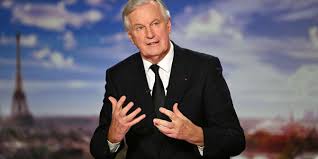‘The current situation should spur France’s political leaders to abandon dogmatism on tax hikes’

Stéphane Lauer
Paris: After seven years of tax cuts, France is about to swing the tax pendulum back in the opposite direction. “Finally!” said the left. “Again!” despaired the right and the center. The ideological divide on compulsory contributions is in full swing.
The appointment of the new government over two weeks after Michel Barnier was named prime minister, set the stage for posturing – be it more or less feigned – with positions ranging between the imperative need to re-establish tax justice in the country, and the no less imperative requirement that the French economy’s competitiveness not be weakened. Barnier was the adjudicator for this debate, and he has already come down in favor of raising taxes in the name of a “very serious budgetary situation.”

The 2025 budget will undoubtedly be the most complicated one to draw up since the beginning of the Fifth Republic, warned Pierre Moscovici, president of the Court of Audit, the national administrative court charged with conducting financial and legislative audits of public institutions. This particular context should spur political leaders to abandon the dogmatism that has so far dominated the tax debate. By dint of being used ideologically, the debate has become sterile.
The left, in a Pavlovian conditioning that reflects a certain intellectual laziness, has made taxation out to be the alpha and omega of public policy. On the other hand, the outgoing government has pushed the intangible principle of not raising taxes to the point of caricature, setting it down as a sort of inviolable totem.
Read more Subscribers only The future French government’s tough task: Drafting a budget in record speed
By depriving himself of this essential tool, Emmanuel Macron has left France’s public finances in a disastrous state, with a deficit that is unprecedented outside of crisis periods. In accounting terms, the €62 billion in tax breaks granted under the Macron presidency are responsible for 60% of the deterioration in the public accounts. The fact that taxpayers (half of them households, half companies) are not that grateful to him gives one pause for thought.





